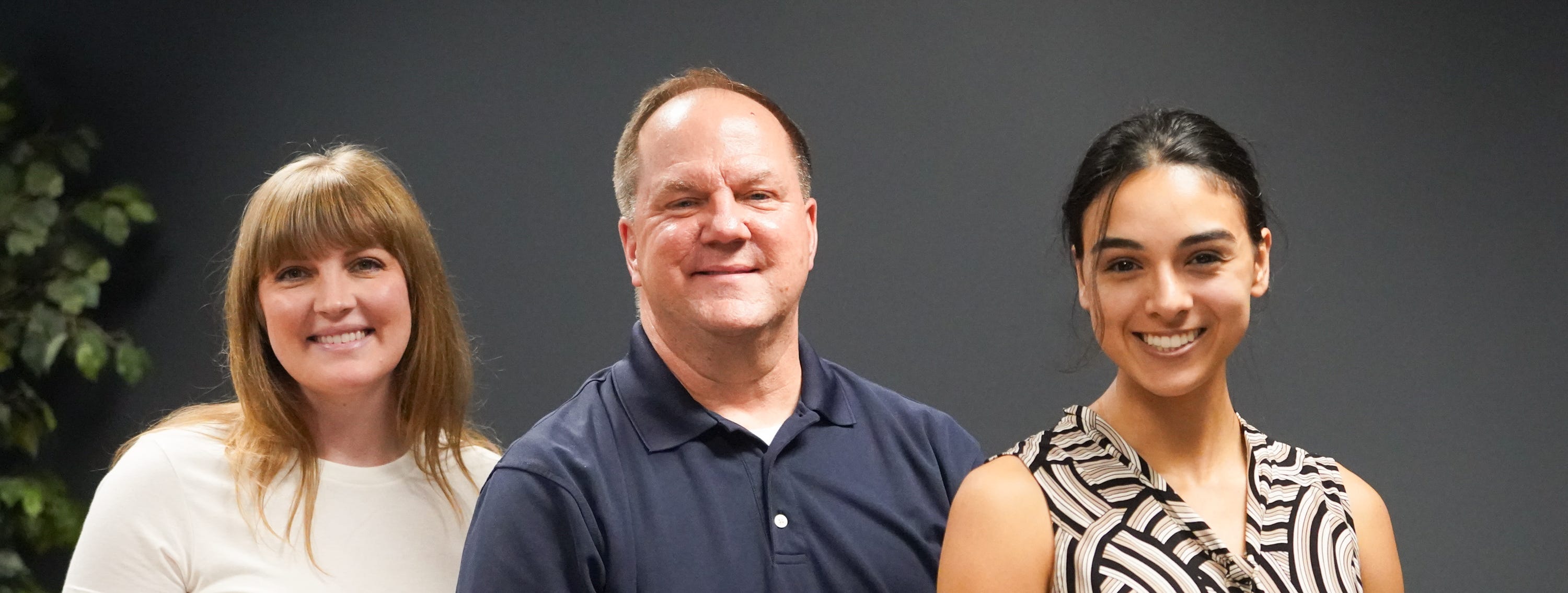
Cracking a cold case with AI? Tech volunteers try to solve an IMPD investigation
Indianapolis Star (IN)
IMPD has entered into a pilot program with an ad hoc group of volunteers to take a run at solving a cold case homicide using artificial intelligence
They are a group volunteering their time to crack a cold case with the help of artificial intelligence (AI).
Every Monday this past summer
"There's a family out there that would like closure," said Brumbarger, the manager of the team. "It's in our best interest that we provide that for them."

Dubbed "Team Monocles," the group is a small piece of a growing movement to tap AI for crime-solving. But not everyone, including law enforcement agencies, is on board with the idea of implementing AI so early in development because of serious issues with the tech, such as errors and bias.
The team — with expanding professional backgrounds from marketing experts, actors and even a retired tech engineer — has committed to trying to solve the
It goes beyond asking ChatGPT to complete a task for you. By leveraging "state-of-the-art, commercial-grade" AI tools within a private cloud, combined with the team's actual intelligence to problem solve, the volunteers aim to connect dots not previously explored by police.
"AI is largely there to speed up the process," Brumbarger said. "The key is really knowing how to ask the right questions because it probably has the answer you're looking for. We're using a very powerful search tool to look through thousands of files and pages."
How do you feel about AI? Some school districts bet on AI as future of security while others raise doubts
Indianapolis Metropolitan Police's approach to AI
Capt.
"Much better than last years," Spurgeon said. "It fluctuates throughout the years... but we ended last year with a 50% clearance. There's been an internal push with detectives to go back and review those open cases."
This cold case is one of them.
Police Chief
Traffic safety systems, tools that predict crime trends, crime analysis software, DNA analysis, and gunshot recognition are only some of the ways police departments are using artificial intelligence.
"Currently, we are in the discovery phase, where we are working to better understand the capabilities of AI, how it could benefit our department, and what potential risks are associated with its use,"
The city recently tested the AI waters when it piloted the use of gunshot detection equipment, which evaluates sound through an artificial intelligence algorithm to determine if it's gunfire and alert police.
The controversial technology was pulled after a report cited concerns about its reliability, efficacy and potential biases.
IMPD and AI? Leaked data shows where gunshot detectors are in Indy. Here's where
"There were some successes that we saw within the program but nothing that I could hang my hat on to say, 'No, that's something that we have to have throughout the city,'" Bailey said.
Still, AI technology remains prevalent and is often touted by
For example, data from license plate readers, cameras that snapshots thousands of plates per minute to compile car details and plate numbers, are regularly referenced in probable cause affidavits for suspects in homicides. There are about 300 cameras throughout
But license plate readers have faced similar criticism with experts raising concerns over the potential for error, misuse, privacy and racial bias of the technology.

Technology controversy: IMPD will not go ahead with gunshot detection system
Don't rely solely on artificial intelligence
While the more extreme end of the AI spectrum is a fear of it taking over the world (or at least jobs), the lower end fear is the unknown of it. What is known about AI is that it's growing and growing fast.
"We started developing a project last year using
AI is only as good as its model creators, according to Gao, who does research on the trustworthiness of the technology. It uses historical data to give answers to questions, but historical data is rooted in bias.
Case closed: Victims of
"Most of the AI models can give a decision if you input something for it to predict," Gao said. "It can say like whether the probability for something is high or low, but right now it's still hard to tell whether this decision is correct or not."
Gao said Team Monocles using AI to sort through huge files to extract key information is only the beginning of where artificial intelligence can take us, but warns against relying solely on the tool.
"It's not as mysterious as people think, but I caution to slow down on AI for decision purposes," Gao said. "I feel that AI is still controllable, but once you receive the output from the AI model, investigators will still have to verify. Do not fully trust AI to give you the answer."
Brumbarger said it's their team's trained creative problem-solving method paired with AI that they are using to help solve the
"I was skeptical of it, myself," Brumbarger said. "The whole world is afraid that AI is going to take over, but we are using AI as a supplemental tool in our tool bag. It's not the only thing."
Team Monocles project manager,
"We're pioneering new methods of even solving future cases and projects," Delgado said.
How do other criminal justice professionals feel?
Not everybody is quite on board with the excitement of how rapidly artificial intelligence is growing.
The
"We do not use AI, except for where all humans have used it, for things like spell check and grammar check," Sutton said. "There are so many variables, like what information is being shared to come to a conclusion, and you would have to worry about how bias plays a part."
"It's input and output, right?" Black said. "There have been studies done about AI bias against people of color and facial recognition. We don't want to get to a point where a jury will rely on AI more than a human who has professional experience."
"AI is a tool just like any other tool. Like a hammer," Stock said. "A hammer can drive in a nail to build a hook or a hammer can be used to bash somebody's brains out. As a tool, it's not inherently good or bad. It's how we use it."
'...It's not inherently good or bad. It's how we use it.'
There are many unknown variables to how AI can take society into the future, but in the present, Team Monocles is almost to the
Member,
"There are some aspects of the technology, as sort of amateur investigators, we've been able to utilize to better understand evidence in the case," said Lanning. "It's also been a learning opportunity as amateurs. We do not have access to the same kind of technology that, say, officials employed by the state or federal government do."
Lanning said a few other members were skeptical about using the technology for good reason, but even with experts weighing in on slowing down, Lanning believes this is only the beginning.
"We're in a rapidly changing world," Lanning said. "The technology is changing fast. We obviously need to be careful about any technology landing in the wrong hands, but this could be a really big way for the world to change for the better."
This article originally appeared on
© Copyright 2024, GANNETT